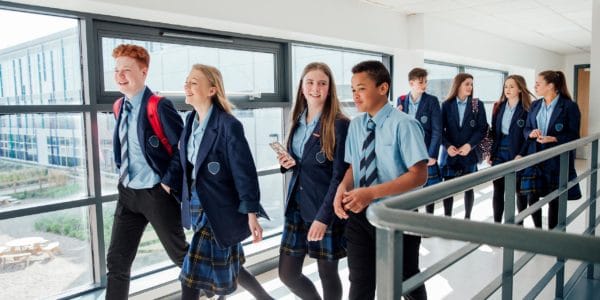
01/02/21
2 min read
By the time the pandemic is over, most children across the UK will have missed over half a year of normal, in person schooling. In a new IFS Observation, Luke Sibieta argues that without a massive policy response, the long-run effects of this learning loss are likely to be substantial.
Drawing on analysis from the Nuffield-funded IFS Annual Education Spending Report, the Observation sets out the potential long-run costs of lost schooling and illustrates the scale of potential costs and risks we face, and the economic rationale for a massive national plan to address this crisis.
Key findings include:
- By February half-term, children across the UK will have lost at least half a year of normal, in person schooling. This would increase to two thirds of a year if schools weren’t to reopen as normal until Easter.
- Early evidence already suggests this loss of schooling is contributing to lower educational progress and skills, particularly for disadvantaged pupils.
- Existing evidence on returns to schooling would imply a long-run loss in earnings of £350bn.
- If by some miracle, the efforts by schools, teachers, children, parents and charities allowed us to mitigate 75% of this effect, the total loss would still be £90bn.
- A large amount of these negative effects are likely to be borne by children from lower-income families, resulting in a likely rise in inequality over the long-run.
- A massive injection of resources is likely to be required to help pupils properly catch up.
- A useful benchmark to judge these plans is the normal cost of half a year of schooling, about £30 billion across the UK.
- So far, governments across the UK have allocated about £1.5bn towards the cost of catch-up. This is highly unlikely to be sufficient to help pupils catch-up or prevent inequalities from widening.
Luke Sibieta, Research Fellow at the Institute for Fiscal Studies:
“A loss of over half a year of normal schooling is likely to have far-reaching long-run consequences. We will all be less productive, poorer, have less money to spend on public services, more unequal and we may be less happy and healthy as a result. Standard evidence on the returns to schooling would imply a total loss of £350bn, or £90bn under incredibly optimistic assumptions. The inescapable conclusion is that lost learning represents a gigantic long-term risk for future prosperity, the public finances, the future path of inequality and well-being.”
“We therefore need a policy response that is appropriate to the scale of the problem. One useful benchmark is the £30bn it normally costs for half a year of schooling in the UK. That doesn’t mean we need to spend that much. But is does strongly suggest that the £1.5 billion allocated across the UK so far doesn’t even start to match the scale of the challenge. A much larger policy response would allow us to consider radical and properly resourced ways to help pupils catch-up.”
IFS Education Spending Annual Report 2020


















































